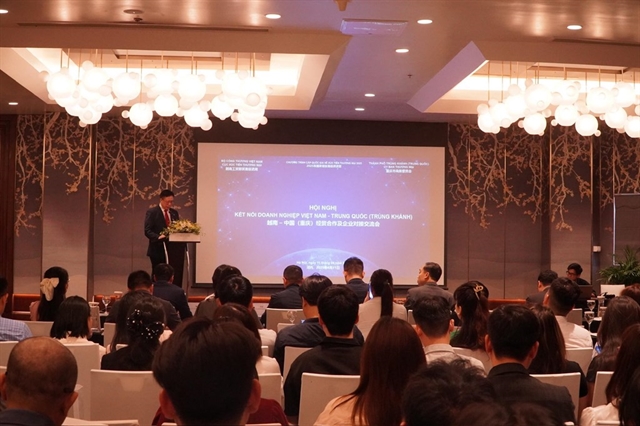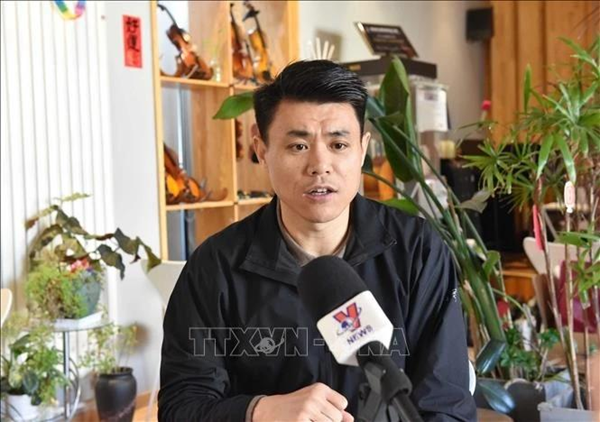 Economy
Economy

 |
| Wei Wei, a researcher on Vietnam and head of the Vietnamese Language Department at the China Central Radio and Television. — VNA/VNS Photo |
BEIJING — General Secretary of the Communist Party of China (CPC) Central Committee and President of China Xi Jinping's upcoming state visit to Việt Nam bears significance for deepening the friendship between the two Parties and two States, according to Wei Wei, a researcher on Việt Nam and head of the Vietnamese Language Department at the China Central Radio and Television.
This marks Xi's fourth visit to Việt Nam since assuming leadership of the CPC, Wei said in an interview with Vietnam News Agency correspondents in Beijing ahead Xi's Việt Nam trip. It is also his first trip to Việt Nam since Tô Lâm took office as General Secretary of the Communist Party of Việt Nam (CPV) Central Committee. The visit follows closely on the heels of General Secretary Tô Lâm’s state visit to China in August last year.
He said that Việt Nam and China are connected by rivers and mountains and boast a four-good relationship – “good neighbours, good friends, good comrades, and good partners”.
China always views its relationship with Việt Nam from a long-term strategic perspective, and the Party and Government of Việt Nam attach great importance to ties with China.
Party General Secretary Tô Lâm has repeatedly affirmed that Việt Nam always remember China’s sincere support during Việt Nam's revolutionary struggle and nation-building efforts, and considers fostering ties with China a strategic choice and top priority in its foreign policy, Wei said.
Wei noted that in late 2023, the two sides announced a new positioning of bilateral ties, pledging to build a strategically significant Việt Nam–China community with a shared future. This framework, grounded in the deepened comprehensive strategic cooperative partnership, opens a new chapter in bilateral relations suited to the modern era. It aligns with both nations’ development goals and serves the shared interests of their peoples.
As 2025 marks the 75th anniversary of Việt Nam–China diplomatic relations, Wei expressed confidence that the upcoming visit will not only continue the momentum of bilateral cooperation but also serve as a fresh starting point – elevating collaboration to a new level and giving new impetus to the shared-future initiative.
As Việt Nam is currently pushing ahead with administrative reforms, the visit will be an important occasion for the two sides to exchange insights on national governance, the expert held.
Highlighting the close bond between the two countries in all fields, Wei said that he hopes the top Chinese leader's visit will inject fresh momentum into cooperation across a wide range of sectors, from politics, security, and economics to society and cultural exchanges, delivering tangible benefits to both countries.
On bilateral economic and trade ties, Wei noted that in recent years this relationship has become a highlight of overall Việt Nam–China cooperation. In 2024, China was Việt Nam’s largest trading partner and third-largest source of foreign investment, while Việt Nam has become China’s fourth-largest trading partner in the world. Their cooperation model, based on complementarity, mutual benefit, and win-win outcomes, is emerging as a leading example in the region.
Following General Secretary Tô Lâm’s visit to China last August, the two sides have boosted political trust and deepened collaboration in key areas, elevating bilateral ties to a new, more substantive level. Infrastructure connectivity is a key focus: efforts continue to enhance rail, road, and border infrastructure, while building efficient logistics networks. Both countries are also stepping up collaboration in emerging sectors and strengthening industrial linkages. — VNS